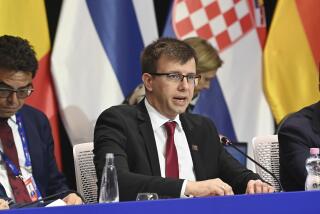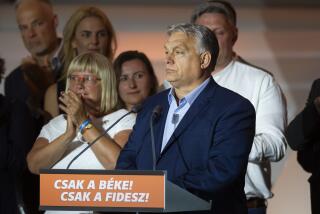EU to conditionally lift Cuba sanctions
BRUSSELS — The European Union agreed Thursday to lift its diplomatic sanctions against Cuba but imposed tough conditions on the communist nation, officials said.
The United States, which has maintained a decades-long trade embargo against Cuba, criticized the move, saying there were no significant signs that a dictatorship on the island was easing.
EU External Relations Commissioner Benita Ferrero-Waldner said the bloc felt it had to encourage changes in Cuba after Raul Castro took over as the head of the government from his ailing brother Fidel.
“There will be very clear language also on what the Cubans still have to do . . . releasing prisoners, really working on human rights questions,” Ferrero-Waldner told reporters at an EU summit.
“There will be a sort of review to see whether indeed something will have happened.”
The largely symbolic decision is to take effect Monday.
The diplomatic sanctions, which banned high-level visits to EU nations by Cuban officials, have not been in force since 2005. They were imposed in 2003 after the arrests of dozens of dissidents but suspended two years later.
As part of its action, the EU approved a set of conditions for sanctions-free relations with Cuba.
They include the release of all political prisoners; access for Cubans to the Internet; and a double-track approach for all EU delegations arriving in Cuba, allowing them to meet both opposition figures and government members.
Officials said the bloc would evaluate Cuba’s progress in a year and could take new measures if the nation’s human rights record did not improve.
More to Read
Sign up for Essential California
The most important California stories and recommendations in your inbox every morning.
You may occasionally receive promotional content from the Los Angeles Times.









